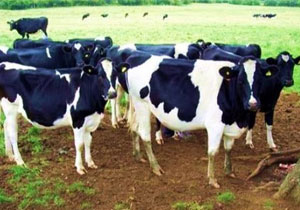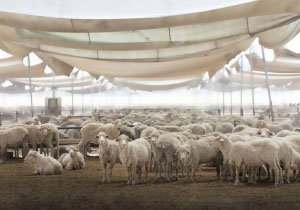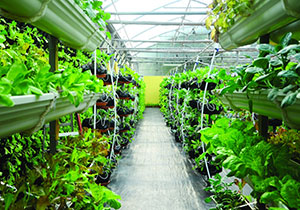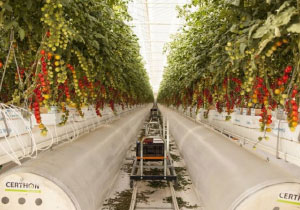Greenhouse gas management
- Super User
- Greenhouse gas management
- Hits: 103
Greenhouse gas
The gas in a planet absorbs and propagates beams in the infrared range. This process is the basis of the greenhouse effect. The available greenhouse gases in the atmosphere are steam, carbon dioxide, methane, dinitrogen monoxide, and ozone; but human activities increased some of these gases in the atmosphere.
representative of these gases. When sun rays reach the earth, a part of these rays absorb and warm up the surface; because the surface is colder than the sun. As a result, it propagates the waves with longer wavelengths compared to the sun.
Sun rays are propagated with more wavelengths after colliding with the earth. On the other side, the atmosphere simply absorbs the waves with more wavelengths. So, the recursive waves from the earth are absorbed by the atmosphere. Absorbing these waves causes the atmosphere warming. This is not harmful itself, but when the greenhouse gases are in the way of these recursive waves the harms increase.
Before human intervention in the environment, the atmosphere always kept a part of the sun waves in itself and made the temperature to be sufficiently warm for living.
After the human intervention, they increased the sun ray’s absorption by creating greenhouse gases.
The research has shown that during the past 100 years ago, the average temperature near the earth's surface increased between 0.18 to 0.74 degrees.
The human role in greenhouse gases creation
Now that we know what greenhouse gases are, the human's role in the creation and imposition of these gases to the earth is more obvious. Human activities and burning fossil fuels cause more creation of Carbon dioxide and its release in the earth. Before that, the number of greenhouse gases in the atmosphere was low, but with population growth and an increase in using oil and coal, the combination of the atmosphere's gas changed, the density of greenhouse gases reached 367 from 270. On the other side animals like cows produce methane in their exhale and nurturing cow for human feed cause an increase in methane production. It is said that the greenhouse effect of methane is 4 times larger than the carbon dioxide greenhouse effect. The chemicals like Hydro fluorocarbons and per fluorocarbons cause damage to the Ozone and increase sun rays’ transmission.
Global warming crisis and greenhouse gases
Before the human entrance into this area and the production of gases as industrial outputs, global warming was natural, and the earth's temperature was suitable for living. Research shows that with human entrance and after the industrial revolution, global warming is seen, and irregular entry of greenhouse gases, especially Carbon dioxide, cause increase the global temperature and melting polar ice. In the history of the earth, the weather has been changed slowly in hundreds and thousands of years; but climate change is faster under human activities' affection. The experts in atmospheric studies recently warned that, if leaders of the world cannot achieve an agreement on decreasing greenhouse gases emission, 10 million will die due to the severe increase in temperature.
The strategies for reduction in greenhouse gases emission:
Electricity usage reduction
Industrial processing on products reduction
Packaging reduction
Reduction in the necessity of waste disposal
Researchers' strategy to decrease carbon dioxide emissions
Environmental researchers believe that if one person imports one less plastic bag into nature's cycle, it will be a big help. Using paper bags is a proper replacement for plastic bags. Some of the other solutions are:
Walking, using public transportation
Turning the car off in traffic or in stop time
Turning off the extra lights in the house or at work
Using recyclable plastics
Isolating windows and doors
Planting trees in the green part of the yard
Using natural manure or campus in gardening
Remember that these efforts might look simple or insignificant, but have an important effect on clean earth and healthy air.
The earth is our home and our grandchildren's home. We should try to save it.









